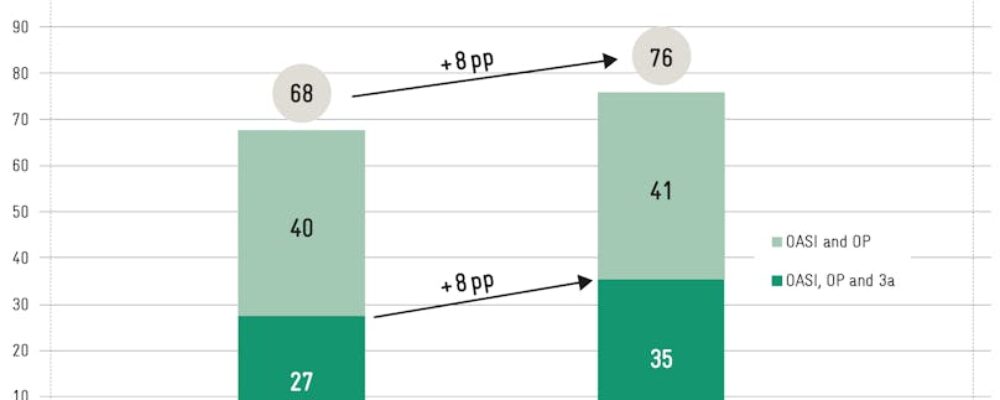A study by the University of Zurich has been stirring things up in Switzerland in the last few days. The alleged and heavily debated core message is that female students in female-dominated fields of study have fewer career ambitions because they stick to traditional gender roles.
Now imagine if the cantonal council of Zurich were to take this study as an opportunity to limit the admission of women to disciplines such as psychology or sociology. The aim of the majority of the council in doing so would be to ensure that more women completed degrees in STEM subjects (Science, technology, engineering, and mathematics) and thus worked full-time in the long run.
Such a practice would be highly questionable. A selective interpretation of one single research paper is hardly a good guide to smart policy. If policymakers rely on scientific findings, they must be aware of the limitations: What tangible answers can a study ‒ or science in general ‒ provide? What other aspects need to be considered?
A one-sided reading of statistical wage differences
The previously mentioned scenario may be exaggerated. However, the one-sided interpretation of statistics and scientific papers is a reality in politics. For instance, at the beginning of May, the National Council approved a motion to tighten gender equality policies. Since 2020, companies have been required to conduct internal pay assessments and provide information about them. Depending on the findings, they could now even be sanctioned with fines.
Pay discrimination is by no means proven. (Unsplash)
This far-reaching intervention is justified by the allegedly widespread pay discrimination against women. This is said to persist despite all efforts, and the claim is that it can only be eliminated by means of sanctions. In other words, because official interventions don’t seem to have worked so far, the National Council believes it can find salvation in even stricter measures (Avenir Suisse has repeatedly cautioned against such a regulatory spiral). This prompts the question: Are policymakers acting against their better judgment here, or is there a lack of general understanding of the subject in the Federal Parliament?
After all, pay discrimination is by no means a proven fact. It’s true that according to a macroeconomic analysis, women with “comparable” characteristics receive around 8% less salary. However, whether and to what extent discrimination actually exists can’t be concluded from this figure.
The same applies to pay gaps within companies. To measure these, Logib ‒ a statistical cure-all provided by the federal government ‒ is usually used. Based on a handful of personal and job-specific variables, it determines if gender pay gaps exist. Anything that can’t be justified in terms of the handful of factors taken into account is automatically labeled as discrimination. This is wrong, because even “unexplained” pay gaps can conceal legitimate pay-determining differences. Moreover, the tool doesn’t recognize when, for instance, a woman is denied a promotion (and higher pay) as a result of her gender. Even the “explained” pay gap is thus not immune to misinterpretation. It would therefore be absurd to impose fines on the basis of an inadequate calculation model.
This ill-advised initiative even threatens to harm the cause of equality. Companies shy away from sanctions, blacklists, and the associated damage to their reputation. They will know how to use this simplistic analysis tool to their advantage if it reveals pay gaps. Worse, because the statistics don’t take actual work experience into account, Logib considers employing women after prolonged career breaks to be wage discrimination. So, should we stop hiring women who have taken a maternity break (or even stop hiring women altogether)?
Double standards
Two episodes in the gender policy debate overlap in terms of content but differ in their patterns. On the one hand there’s a study on role models and gender behavior that has been controversially discussed in the media: It’s a good thing when the media and politicians critically examine a scientific study. There’s a need for a better understanding among the public of causality, study design, and the interpretation of scientific results.
On the other hand, there’s the debate on pay: The narrative of gender-based wage discrimination is continually being pushed, based on a selective and downright obstinate interpretation of wage data. Yet hardly anyone appears to be bothered by this. Quite the opposite: as the National Council’s decision shows, the narrative has now spread far into the conservative camp. When repeated over and over again, even allegations that are far from the facts are eventually believed.
“Avenir Suisse is an independent think tank that works for the future of Switzerland by developing evidence-based, liberal, free-market ideas.”
Please visit the firm link to site





